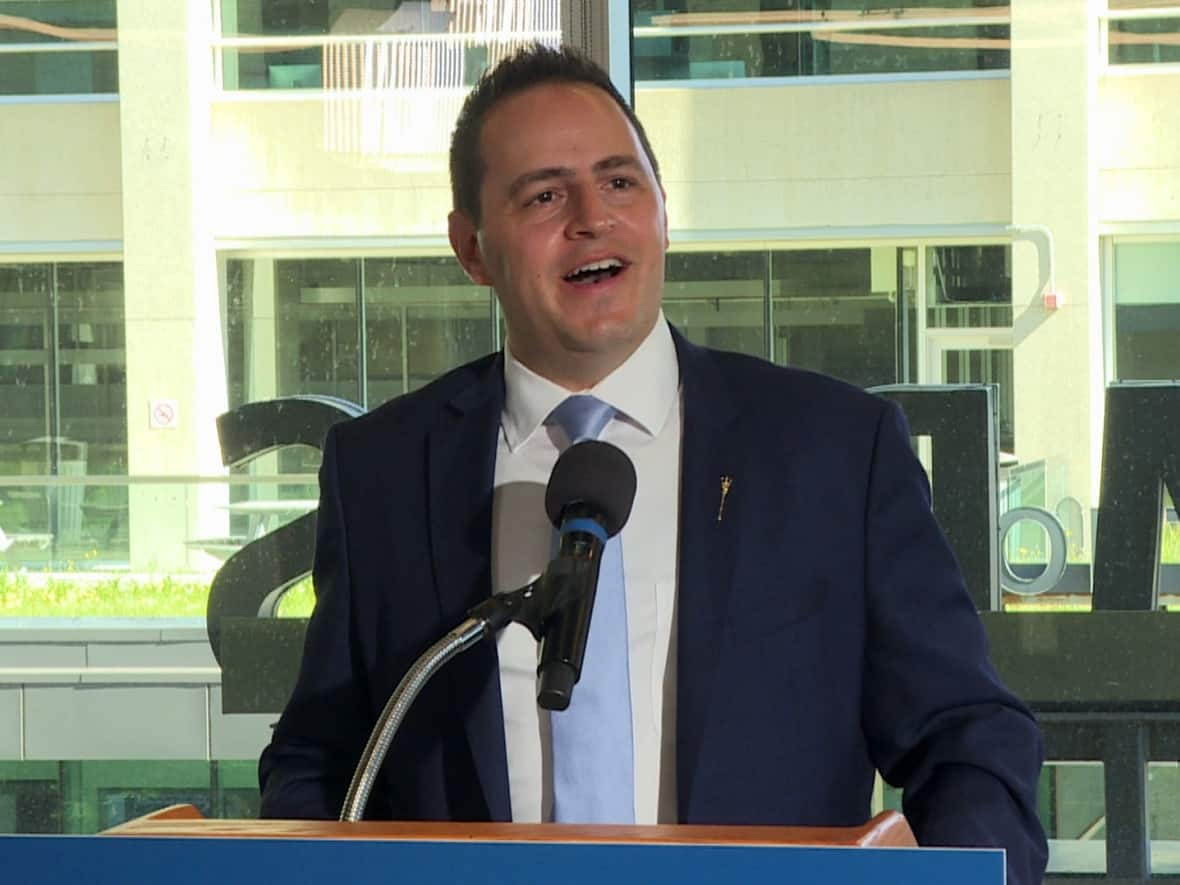Alberta announces new low-income student bursary

In an attempt to fill growing labour market needs with a crop of new graduates, the province is launching a financial aid program for low-income students enrolled in what it has identified as "high-demand programs."
At a media availability at Bow Valley College on Wednesday, Advanced Education Minister Demetrios Nicolaides said the Alberta government will invest $15 million over the next three years in support of the New Beginnings Bursary, a non-repayable, one-time financial grant.
"We are indeed opening new doors and creating a level playing field where Albertans have equal access to education and opportunity," said Nicolaides.
Selected programs
Beginning with the 2022-23 academic school year, 1,000 students per year will receive $5,000 in financial aid over the next three years.
Recipients will be automatically selected for the grant through the province's student loan and student aid systems.
Eligibility criteria will be based on a student's family size and income. For example, a single person with no dependents would need to demonstrate an income of $33,000 annually or less to qualify, but a family of four would need to demonstrate a household income of $66,000 or less in order to qualify, said Nicolaides.
The bursary will be made available to students enrolled in programs such as energy, technology, aerospace, aviation and finance — sectors in which there are "strong labour market needs," Nicolaides said.
"In order to determine which programs the bursary is available in, we have considered labour market data, industry need, in province retention rates and student demand," he said.
More challenges for students
Nicole Schmidt, president of the students' union at the University of Calgary, said that while the bursary is a positive step forward, it's not enough to provide meaningful support to the general student population given rising tuition costs and overall recent funding cuts.
"The provincial government has cut $600 million from post-secondary education over the last few years, and a $15 million investment, while very much welcome, is a drop in the bucket," said Schmidt.
Schmidt said the university has recently approved increased tuition proposals for engineering and medical students — extra costs have been exacerbated by the province's lack of a student jobs program, which ended in 2019.
Schmidt added she doesn't think the bursary should be dependent on the type of degree a student chooses to pursue.
"If a student is accepted into any program and demonstrates financial need, what they choose to study should not be a barrier or should not be a factor in receiving funding," said Schmidt.
"It's disappointing to see the government pick winners and losers by only making students and certain programs eligible for this funding despite financial need."


